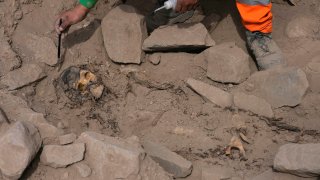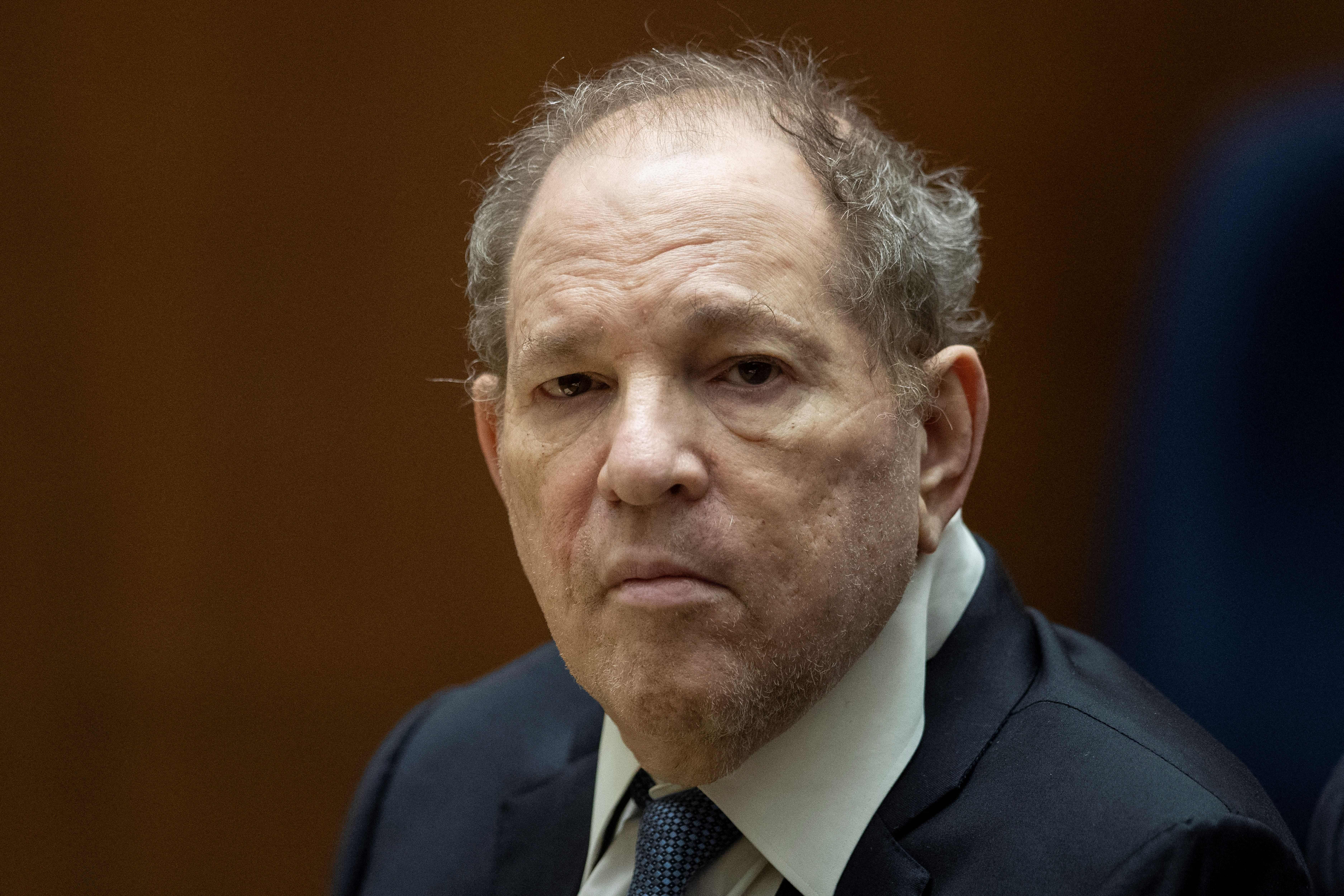
Archeologists have found a pre-Hispanic mummy surrounded by coca leaves on top of a hill in Peru’s capital next to the practice field of a professional soccer club.
A team from The Associated Press on Thursday viewed the skeleton with long black hair lying face up with its lower extremities tied with a rope braided from vines of vegetable origin. Stones surrounded the mummy buried one meter (three feet) down.
Miguel Aguilar, a professor of archeology at Universidad Nacional Mayor de San Marcos, said the mummy was buried in a ritual that included coca leaves and seashells.
The burial was on top of a destroyed U-shaped clay temple, a characteristic of some pre-Hispanic buildings. The mummy has not yet been subjected to radiocarbon dating to determine its age, Aguilar said.
Get Southern California news, weather forecasts and entertainment stories to your inbox. Sign up for NBC LA newsletters.
He said old fly eggs were found next to the male skeleton, leading them to believe the body was exposed for at least several days before being covered with dirt.
It was found in Rímac, a district separated by a river of the same name from the oldest part of Lima. Aguilar also heads the Historical and Cultural Center of the Municipality of Rímac.
Pieter Van Dalen, a professor at Universidad Nacional Mayor de San Marcos who is an expert on archeology of the Peruvian coast but was not involved in the project, said the rope binding the lower extremities of the mummy is an example of the pattern seen in ceremonies. He cited another mummy found in a different area of Lima whose body was also tied with vegetable ropes.
U.S. & World
News from around the country and around the globe
The team of excavators worked the first months of this year collecting up to eight tons of garbage that covered the top of the hill, which is next to the training field and headquarters for the Sporting Cristal soccer club. Police also removed homeless people and drug addicts who camp out around the hill.
The hill, which has remains of ancient mud walls, was a “huaca," a Quechua word meaning oracle or sacred place. There are more than 400 huacas in Lima, according to the Ministry of Culture.
Mummies and other pre-Hispanic remains have been found in unusual places in the city. Workers installing natural gas lines or water mains have found mummies, sometimes children, inside large clay vessels.
There are even cases of discoveries by residents, such as Hipólito Tica, who found three pre-Hispanic mummies in a hole in the patio of his house. He kept quiet about them for a quarter century, until in 2022 they were removed by archaeologists with permission from Peru's Ministry of Culture.



